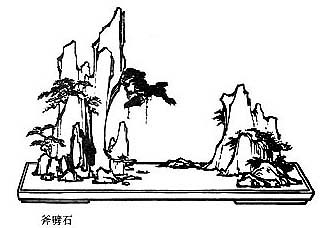Lun Yu 
 – Les Entretiens de Confucius
– Les Entretiens de Confucius
Le Maître échange propos, anecdotes, brèves paraboles et maximes avec ses disciples. Tr. Couvreur (fr), Legge (en) et Lau (en).
Lunyu V. 19. (111)
Tzeu tchang dit : « Tzeu wenn [Premier ministre de Tch'ou] fut trois fois nommé Premier ministre ; il n'en manifesta aucune joie. Il fut trois fois dépouillé de sa charge ; il n'en manifesta aucun mécontentement. En quittant la charge de Premier ministre, il faisait connaître à son successeur ses actes administratifs. Que faut-il penser de lui ? » Le Maître dit : « Il a été loyal. » Tzeu tchang reprit : « A-t-il fait preuve d'humanité ? » Le Maître répondit : « Je ne le sais pas ; [son indifférence pour les charges] est-elle un signe d'humanité ? »
Tzeu tchang dit : « Ts'ouei tzeu, ayant tué son prince, le Prince de Ts'i Tch'enn Wenn tzeu1, abandonna ses dix attelages de quatre chevaux, et quitta sa terre natale2. Arrivé dans une autre principauté, il dit : “Ici les officiers ressemblent à notre grand préfet Ts'ouei tzeu”. Et il s'en alla. Quand il arrivait dans une nouvelle principauté, il disait toujours : “Ici les officiers ressemblent à notre grand préfet Ts'ouei tzeu”. Et il se retirait. Que faut-il penser de lui ? » Le Maître répondit : « C'était un pur. » Tzeu tchang reprit : « A-t-il fait preuve d'humanité ? » Confucius, répondit : « Je ne le sais pas. En quoi est-ce de l'humanité ? ».
Couvreur V.18.
The praise of perfect virtue is not to be lightly accorded.
1. Tsze-chang asked, saying, "The minister Tsze-wan thrice took office, and manifested no joy in his countenance. Thrice he retired from office, and manifested no displeasure. He made it a point to inform the new minister of the way in which he had conducted the government;– what do you say of him?" The Master replied. "He was loyal." "Was he perfectly virtuous?" "I do not know. How can he be pronounced perfectly virtuous?"
2. Tsze-chang proceeded, "When the officer Ch'ûi killed the prince of Ch'î, Ch'an Wan, though he was the owner of forty horses, abandoned them and left the country. Coming to another state, he said, 'They are here like our great officer, Ch'ûi,' and left it. He came to a second state, and with the same observation left it also;– what do you say of him?" The Master replied, "He was pure." "Was he perfectly virtuous?" "I do not know. How can he be pronounced perfectly virtuous?"
Legge V.18.
Tzu-chang asked, 'Ling Yin Tzu-wen gave no appearance of pleasure when he was made prime minister three times. Neither did he give any appearance of displeasure when he was removed from office three times. He always told his successor what he had done during his term of office. What do you think of this?'
The Master said, 'He can, indeed, be said to be a man who does his best.'
'Can he be said to be benevolent?'
'He cannot even be said to be wise. How can he be said to be benevolent?'
'When Ts'ui Tzu assassinated the Lord of Ch'i, Ch'en Wen Tzu who owned ten teams of four horses each abandoned them and left the state. On arriving in another state, he said, "The officials here are no better than our Counsellor Ts'ui Tzu." He left and went to yet another state. Once more, he said, "The officials here are no better than our Counsellor Ts'ui Tzu," and he again left. What do you think of this?'
The Master said, 'He can, indeed, be said to be pure.'
'Can he be said to be benevolent?'
'He cannot even be said to be wise. How can he be said to be benevolent?'
Lau [5:19]
Nabi menjawab, "Ia seorang yang Satya".
"Bukankah dia seorang yang berperi Cinta Kasih ?"
"Aku belum tahu ia dalam hal-hal lain. Bagaimana Aku dapat mengatakan ia berperi Cinta Kasih ?
b. Cui-zi membunuh pangeran negeri Qi, Chen Wen-zi sekalipun mempunyai sepuluh kereta serta kudanya, ia rela meninggalkan negerinya dan mengembara. Setiba di negeri lain ia berkata, 'Disinipun ada orang semacam Cui-zi'. Ia lalu mengembara lagi. Setiba di negeri lain, ia berkata pula, 'Disinipun ada orang semacam Cui-zi'. Dan iapun mengembara lagi.
"Bagaimanakah dia ini ?"
Nabi menjawab, "Ia seorang yang bersih".
"Bukankah ia seorang yang berperi Cinta Kasih ?"
"Aku belum tahu hal-hal lain. Bagaimana Aku dapat mengatakan ia berperi Cinta Kasih ?"
[Text has been corrected, thanks]

Les Entretiens de Confucius – Lun Yu V. 19. (111) – Chinois off/on – Français/English
Alias the Lunyu, the Lun Yü, the Analects, les Entretiens du maître avec ses disciples.
Le Canon des Poèmes, Les Entretiens, La Grande Étude, Le Juste Milieu, Les Trois Caractères, Le Livre des Mutations, De la Voie et la Vertu, 300 poèmes Tang, L'Art de la guerre, Trente-six stratagèmes
Bienvenue, aide, notes, introduction, table.
Index – Contact – Haut de page























